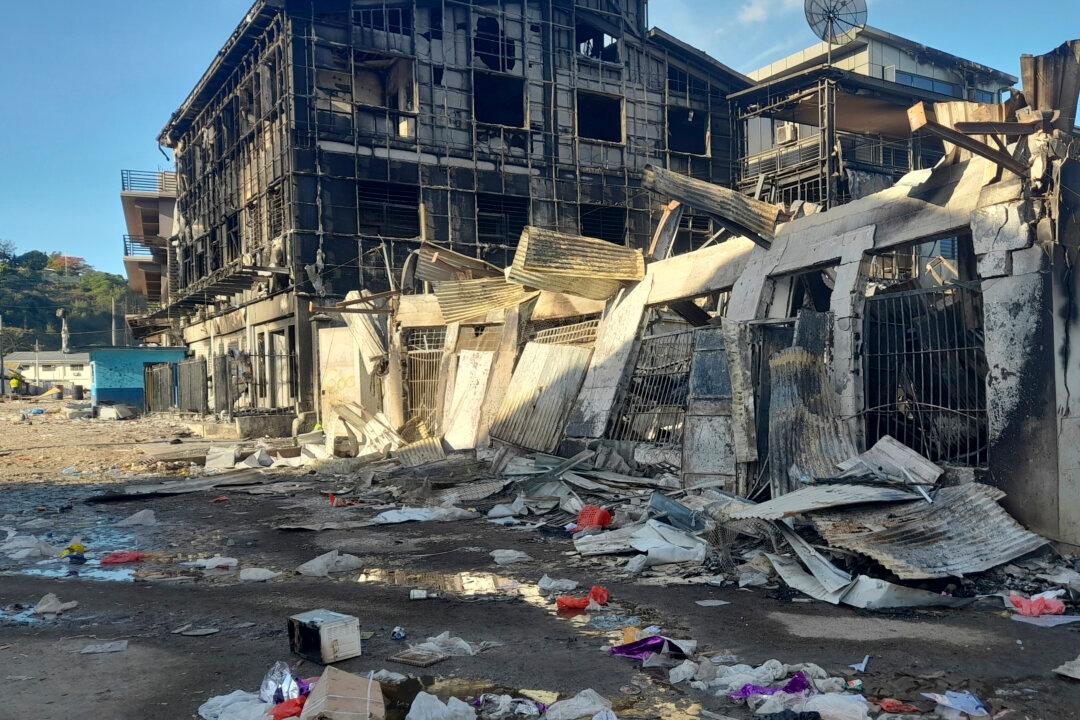News Analysis
Chinatown and a police station in the Solomon Islands’ capital city of Honiara were partially burned down during protests that started on Nov. 24.

Chinatown and a police station in the Solomon Islands’ capital city of Honiara were partially burned down during protests that started on Nov. 24.